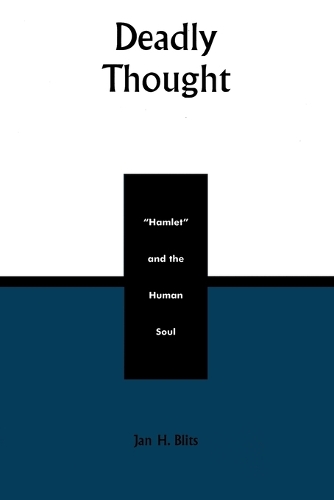
Deadly Thought: Hamlet and the Human Soul
(Paperback)
Publishing Details
Deadly Thought: Hamlet and the Human Soul
By (Author) Jan H. Blits
Bloomsbury Publishing PLC
Lexington Books
17th January 2001
United States
Classifications
Tertiary Education
Non Fiction
Literary studies: c 1600 to c 1800
Philosophy
Political science and theory
822.33
Physical Properties
Paperback
416
Width 151mm, Height 229mm, Spine 22mm
522g
Description
This text provides a line-by-line analysis that explores the philosophical world of the play and its chief protagonist, Hamlet. Jan Blits illustrates how the character Hamlet, through his inability to reconcile "thinking" and "life", is representative of the modern split between mind and body. The book demonstrates that Hamlet, not only appears as the first self-conscious protagonist signalling the death of ancient tragedy, but also provides an example of the enduring creative tension between reason and life.
Reviews
Blits is that rare critic of "Hamlet" who convinces his reader that, in commenting on the play line by line, he has connected every line with every other of the play's more than four thousand lines. -- John Alvis, professor and director, American Studies Program, University of Dallas
It is a rare reader who combines successfully audacity with great care. Jan Blits is one of our shrewdest interpreters of Shakespeare. -- Michael Davis, Sarah Lawrence College
Deadly Thought will be an invaluable resource for any student who wishes to study [Hamlet] intensely or investigate avenues for further research. * Ben Jonson Journal *
This accessible account is a good choice for high school and college students and is recommended for all public libraries. -- Karl Helicher * Library Journal *
Deadly Thought is the closest reading I know of this much-written-about work. The particulars are always related to general discussions of philosophic issues, political questions, diction, and rhetoric. . . . A study well worth the serious attention it requires of its reader. -- Mera J. Flaumenhaft, St. John's College, Annapolis
Author Bio
Jan H. Blits is Professor, Honors Faculty, at the University of Delaware. He is the author of The Insufficiency of Virtue: "Macbeth" and the Natural Order (1996), and The End of the Ancient Republic: Essays on "Julius Caesar" (1993).
